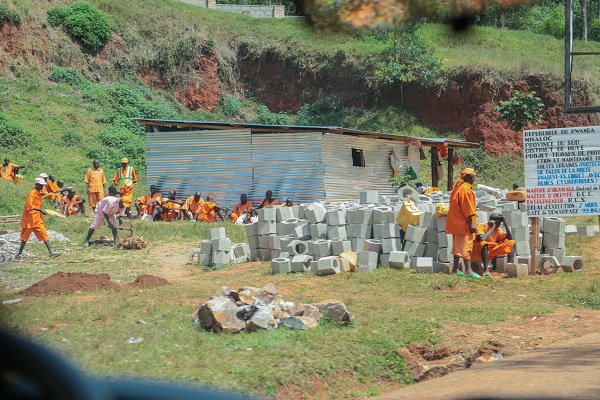
By JOHNSON KANAMUGIRE, Rwanda Today
The government faces a tough task of integrating back to society the increasing number of genocide convicts who are set to complete their sentence terms soon.
As the country commemorates 25 years after the 1994 Genocide against the Tutsi, officials at Ibuka, the umbrella organisation of Genocide survivors said there is a need for programmes to manage the transfer of over 8,000 genocide convicts, alongside hundreds of individuals sentenced for crimes like genocide ideology and divisionism who are set for release in the next four years.
IBUKA cites cases of convicts who either have not reformed nor admitted their crimes or shown remorse to the survivors during several programmes aimed at forgiveness and healing.
This could compromise the reconciliation process. “There is a need for specific programmes to not only prepare those genocide convicts who are getting out of prison, but to also prepare the survivors so they are not caught by surprise by the release of their families’ perpetrators,” said Ibuka president Jean Pierre Dusingizemungu.
Mr Dusingizemungu who recently presented this dilemma as an urgent need to the National Unity and Reconciliation Commission (NURC) reiterated the same in his April 7 speech at the Walk to Remember and Night Vigil to kick off the 25th commemoration of the Genocide against the Tutsi in Rwanda.
Official figures from NURC show that over 800 genocide convicts are set to complete their sentences this year and are set for release. The number will rise to more than 920 convicts next year.
The statistics show that genocide convicts getting out of prisons will increase to 1,496, 3,620 and 2,012 people in 2021, 2022 and 2023 respectively.
They include those sentenced by the Gacaca courts for genocide-related crimes ranging from planning and co-ordinating the genocide, killing, raping or informing about the locations of people to kill, among others.
However, the data does not include individuals imprisoned for crimes such as genocide ideology and divisionism, as well as genocide convicts serving life imprisonment.
NURC officials said they planned to engage individual district officials, representatives of genocide survivors and stakeholders running unity and reconciliation initiatives to prepare ahead of the release of convicts in their respective communities.
Fidele Ndayisaba, NURC executive secretary said the commission intends to disseminate the data to individual districts so that each can know the number of convicts to expect.
This will enable them to prepare accordingly for reintegration exercise and inform the survivors ahead of time.
“We will soon share detailed data with the districts including the prisons currently hosting the convicts, their age groups and years spent in prison.
It is going to help in devising required interventions,” said Mr Ndayisaba.
Data shows that, already, thousands of genocide convicts have been released from prisons especially those who were sentenced with community service popularly known as Travail d’Intérêt Général (TIG) as a substitute to a prison term.
A section of the convicts who completed TIG have been successfully reintegrated back into the communities and live side by side with the survivors as a result of unity and reconciliation forums.
However, Ibuka said there is still a lot to do to deepen reconciliation amid persisting issues pertaining to missing bodies of victims of the 1994 Genocide against the Tutsi, unresolved cases of compensation, intergenerational trauma and cases of genocide ideology among the youth.
Originally published: 16 April 2019
